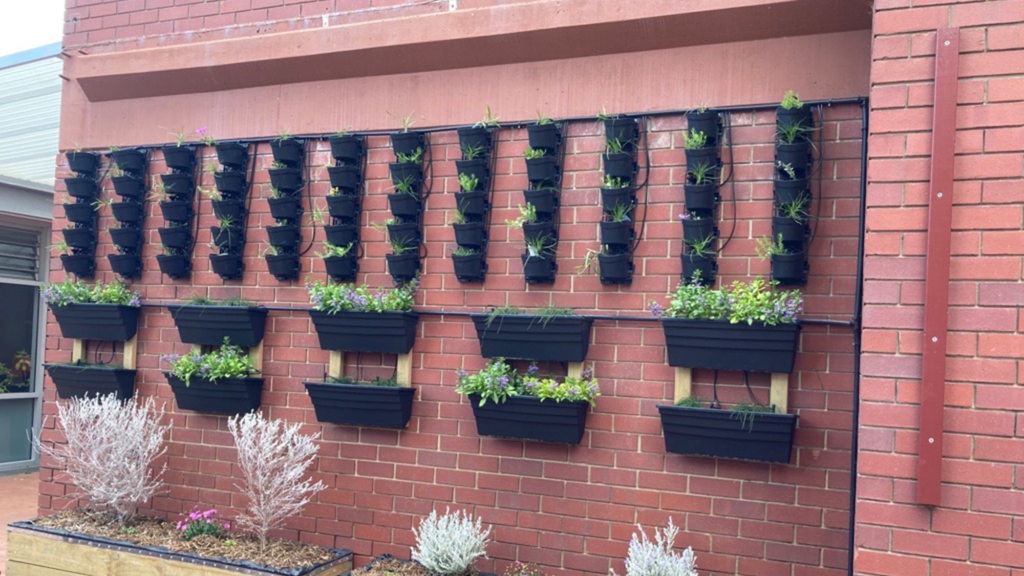By Cameron Paterson
Our education system faces significant challenges. Young people are signaling their discontent through declining attendance, increasing disruptive behavior, and concerning levels of mental health issues – tangible expressions of the desire for an educational experience that better resonates with the aspirations and demands of the contemporary world. Increasing numbers of school refusers and reports from over three-quarters of Australian students that they didn’t fully try in the latest PISA tests underscore the urgency.
Perhaps not so disconnected, renowned climate scientist Joele Gergis warns of a future where temperature increases of 4.0 to 7.0 degrees Celsius by 2100 could become a reality, presenting humanity with a critical choice between extinction and transformation. She writes, “We need you to stare into the abyss with us and not turn away. Australia’s climate is fast becoming more extreme and unpredictable, edging us closer towards breaching thresholds that will make it very difficult, if not impossible, to adapt to…. If we don’t put the brakes on industrial emissions immediately, children alive today will inherit this nightmarish future.“ The growing presence of microplastics, now making up approximately 0.5% of the average human brain’s weight and having increased by 50% in brain tissue since 2016, is a sobering reminder of the environmental degradation we face.
As we confront these challenges, it is essential to infuse education with the awareness that we stand at a pivotal juncture. We must redefine success as a future where humans thrive sustainably, inseparable from the well-being of our planet. Every teacher is now a Climate Teacher, playing a pivotal role in shaping eco-conscious minds.
Addressing eco-anxiety requires action, and for young people this can be growing food, caring for animals, and greening schools. The state of Victoria in Australia now has a wonderful Environmental Sustainability in Schools Policy. The UK has committed to appointing sustainability coordinators in every state school by 2025. Wesley College in Melbourne, Australia, is partnering with Inspire Citizens and several forward-thinking initiatives are in the pipeline:
Declare a Stance on the Climate Emergency. Inspired by Ecolint, schools can formulate a clear position on the climate crisis. A public declaration will demonstrate commitment to addressing the climate emergency and galvanize the community into action. By aligning values with climate realities, schools can act as leaders in societal change.
Reorient Professional Learning Toward Sustainability. Professional learning and coaching are shifting to integrate sustainability and the United Nations Sustainable Development Goals (SDGs). As staff grow in their understanding, they can inspire students to see global challenges through a lens of ecological and social responsibility.
Enhance Service Learning Through Systems Thinking. Service learning is being expanded using systems thinking tools. Through training from Compass Education, both staff and students will develop the skills to understand and address complex global problems. This approach fosters a deeper sense of responsibility and empowerment as students contribute to sustainable solutions within their communities.
Establish a Schoolwide Service Learning Framework. A cohesive framework for Service Learning will map out grade-level expectations and project progression. This will ensure a structured, consistent approach to embedding service into every stage of a student’s journey. A manual will guide teachers and students alike, promoting long-term, meaningful engagement.
Systematize and Celebrate Service Contributions. Recognizing and celebrating service contributions regularly through newsletters, social media, and community events will boost morale and inspire others to participate. This ongoing public recognition helps cultivate a culture where sustainability and service are both valued and celebrated, reinforcing their importance in school life.
Create a Comprehensive Scope and Sequence for Sustainability. A detailed map covering all grade levels will be developed to ensure a cohesive and progressive approach to sustainability. This scope and sequence will guide curriculum design, ensuring that every student, from Elementary to High School, engages deeply with sustainability topics. It ensures that students gain both knowledge and practical experience over time.
Pursue Eco-Schools Accreditation and Join the Alliance for Sustainable Schools. By working towards Eco-Schools Accreditation and joining The Alliance for Sustainable Schools, schools can align with global best practices in sustainability. These affiliations will not only enhance credibility but also provide access to a network of like-minded institutions, fostering collaboration and innovation.
Students at Perth College in Australia did a heatmap of the school and then greened the hotspots.
Beyond traditional sustainability, the concept of regeneration beckons—a paradigm that goes beyond avoiding harm to actively repairing and restoring the damage inflicted upon the planet. It’s time to shift from an extractive approach to a regenerative one, giving back more to the environment than we take. In Australia, the Woodleigh Institute is building an alliance to propel change in education through a focus on systems thinking, well-being, and regeneration.
The world is experiencing a profound cultural transformation, perhaps even more demanding than the Scientific Revolution. As we confront the urgency of the climate crisis, the rise of Asia, and the exponential growth of artificial intelligence and robotics, we stand at the threshold of a new era. The solutions to these global shifts may lie in the integration of Indigenous wisdom, which emphasizes deep connections to nature and sustainable living, offering invaluable insights for navigating this unprecedented change.
The challenges facing our education system demand a profound shift in perspective, acknowledging the discontent of young people as a crucial signal. Book learning isn’t enough in a climate-changed world. We must prioritize the development of schools explicitly designed to cultivate people who can thrive in a world undergoing transformative change. The canary in the coalmine of youth disengagement, combined with the urgency of warnings from climate science, underscores the need to reimagine education as a cornerstone for a sustainable and regenerative future.
Looking after bees at Munich International School (left). The outdoor nature maker space (right).
The post Reimagining Schools in a Climate-Challenged World appeared first on Getting Smart.
Schools must adapt to climate change by integrating sustainability, fostering eco-consciousness, and leveraging systems thinking for a regenerative future.
The post Reimagining Schools in a Climate-Challenged World appeared first on Getting Smart. Green Schools, SEL & Mindset, Climate, mental health Getting Smart








